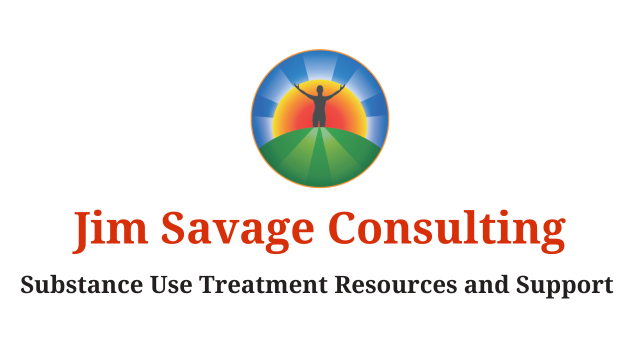REHABWORKS
PRODUCT DEMO
FOR PROVIDERS

A fourth module has been added to the RehabWorks curriculum to provide an effective means of helping users remain engaged with RehabWorks after completing Modules I-III.
- FAQ-style format: What do we say, when they say, "_________________"?
- Addresses the most common treatment challenges
- Puts relevant material right at their fingertips
- New videos include discussion on the respective topics
- New PDFs provide additional commentary

Each unit presents a specific topic based on common statements families may hear from clients that could represent a red flag in the treatment process.
The unit begins with a discussion on the topic, then all the relevant course material is presented right there, so the family member has it right there at his or her fingertips. New PDFs are also included that present a succinct summary of the material for the respective units, as well the specific response for the "When they say _____________________________, we say ______________________________" part of this format.
MODULE IV PREVIEW
MODULE IV: OVERVIEW
Congratulations! You've completed Modules I-III! Now it's time to review and put the material to practical use.
Key Points:
- Keep your head in RehabWorks
- Translating course material to real-life situations
- Addresses common areas of denial or treatment plan resistance
Format:
- "How do we respond" when they say: ___________________________
- Course material is presented that specifically addresses respective topics
- Not required to go in order—go straight to a topic you need assistance with
1. "I'M NOT AS BAD AS EVERYONE ELSE HERE"
Being clear about the Implications of being diagnosed with Substance Use Disorder
Key Points:
- Terminology: What does it mean to have a "problem"?
- Diagnosable medical condition that occurs on a spectrum that ranges from mild to severe
- Common areas of misperception or denial
- Characteristics of addiction and implications for recovery
Course material to review:
- Module I (the entire module!):
- Video 1: Everybody on the same page about what it means to have a problem
- Videos 2-3: Substance Use Disorder is a diagnosable medical condition
- Videos 4-5: Misinformation and denial about addiction
- Videos 6-11: Characteristics of addiction
- Unit PDFs (click to view)
2. "I'LL QUIT THE HARD STUFF, BUT I CAN STILL SMOKE POT"
Simple responses for avoiding one of the most insidious issues that undermines treatment efforts today: Marijuana misinformation, myths, and denial.
Key Points:
- Cross-addiction: Recovery is abstinence from all mood-altering substances
- Physical dependence versus psychological addiction
- Diminished recognition of significant problems with behavior and interpersonal relationships
Material to review:
- Module I , Video 4: Understanding Addiction, Pt. 1
- Module I , Video 5: Understanding Addiction, Pt. 2
- Module I , Video 9: ASAM Definition Of Addiction (Pt. 4 of 6)
- Unit PDFs (click to view)
3. "I DON'T NEED TO GO TO IOP."
Discharge does not mean that treatment is over.
Key points:
- Avoiding premature withdrawal from the treatment process
- Everybody on the same page as far as discharge plan
Course material to review:
Video 7, Module III: The Action Stage (The Importance Of IOP)
PDF 3, Module III: Professional Care
4. "I NEED TO FOCUS ON MY DEPRESSION"
Dealing with depression AND Substance use Disorder
Key Points:
- The need to address depression can be a valid concern
- Substance Use Disorder must be arrested to be able to effectively address co-occurring disorders
- Case example: Effective family response in addressing co-occurring disorder
Review material:
- Video 6, Module I: ASAM Definition Of Addiction (Pt. 1 of 6)
- UNIT PDFS (click to view)
5. "I CAN BE AROUND MY FRIENDS AND NOT SMOKE"
One of the first steps in effective relapse prevention is making lifestyle changes that reduce exposure to triggers.
Key Points:
- Key to successful treatment: Effective relapse prevention planning
- Understanding why the substance user is vulnerable to triggers
Course material to review:
- Video 7, Module I
- PDF 5, Module III
- UNIT PDFs (click to view)
6.. "I'M FINE NOW. I DON'T NEED ALL THIS TREATMENT"
Avoiding premature withdrawal from the treatment process
Key Points:
- Direct indicator of crack in the foundation related to the Preparation Stage
- Importance of following through with the continuum of professional care
- Not wanting to hang in there long enough to make it to the Maintenance Stage
Review material:
Video 2, Module III: Building A Solid Foundation
Video 6, Module III: The Preparation Stage
PDF 3, Module III: Professional Care*
7. "AA'S NOT FOR ME"
3 Pillars of Recovery: Disregard the peer-based support part of the plan and end up with a wobbly stool.
Key points:
- Understanding the elements of peer-based support
- "It's not about trying to convince them to do 12-Step recovery
- Easy to drop the ball on the peer-based support part of plan by when client adopts attitude of "AA or nothing at all".
Course material to review:
- New Video! "Straight Talk About 12-Step"
8. "I'M WORKING MY PROGRAM!"
Hanging around the edges, or actually doing the work?
Key points:
- Easy to let the peer-based support part of the plan to fall through the cracks
- PDF 4, Module III "Peer-based Support": What "working the program" should look like
- Boundaries and control with regard to recovery expectations
Course material to review:
- Pdf 4, Module III: Peer-based Support
- Videos 5-6, Module II: Boundaries

